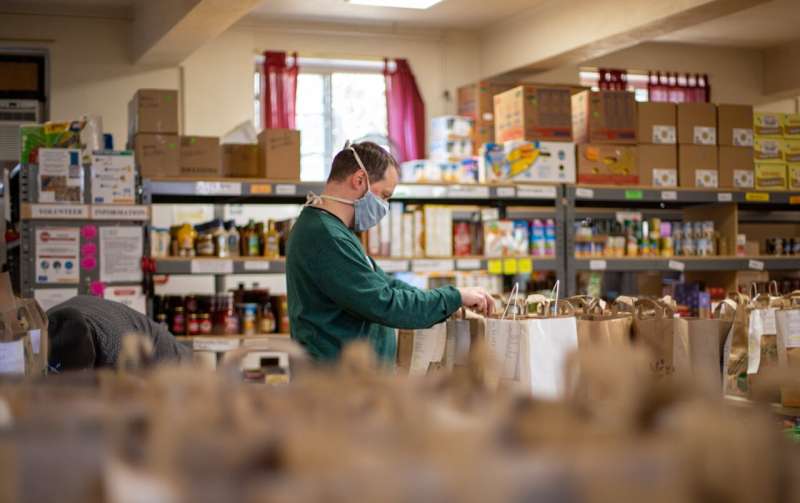Credit: Unsplash/CC0 Public Domain
While access to food is a national concern, college students are experiencing food insecurity at a rate four times higher than the general public. A research article featured in the Journal of Nutrition Education and Behavior discusses how students' use of a campus food pantry can positively affect their physical health, mental health and lead to improvements in sleep.
"In 2015, we found that 40% of University of California (UC) students were experiencing food insecurity, a finding consistent with other research," states corresponding author Suzanna Martinez, MS, Ph.D., Department of Epidemiology and Biostatistics, University of California, San Francisco, San Francisco, CA, U.S. "This prompted the State of California to allocate funding so that by 2018 all UC campuses had a food pantry. Our study was the first to look at the impact these pantries had on changes in student health."
The researchers conducted an online survey of 1,855 students at 10 University of California campuses with questions about their general health before and after visits to the food pantry. The results showed that having access to a food pantry directly improved students' perceived health, reduced the number of depressive symptoms they experienced, increased their sleep sufficiency, and boosted food security.
Co-author Michael Grandner, Ph.D., MTR, Department of Psychiatry, University of Arizona, Tucson, AZ, U.S., adds, "More than half of the students in our group reported being a first-generation student, and nearly half were Pell Grant recipients. It's possible these students were already at a disadvantage when funding their basic needs while at college."
Lead author Suzanna M. Martinez, MS, PhD, University of California, San Francisco, discusses the impact of the availability of campus food pantries on students at 10 University of California campuses. Results show how their use of a campus food pantry can positively affect their physical health, mental health and lead to improvements in sleep. Credit: Journal of Nutrition Education and Behavior
"While UC food pantries began as an emergency response to the high prevalence of student food security, this study provides evidence that they play a critical role in helping students meet their basic needs on a regular basis," Dr. Martinez concludes. "Long-term solutions to address student food security are needed."
Consequently, these findings could be used to advocate for state or federal funding to support the work required to establish food pantries on college campuses nationwide and review college student eligibility for and access to federal assistance programs such as Supplemental Nutrition Assistance Program (SNAP) benefits.
More information: Suzanna M. Martinez et al, Campus Food Pantry Use Is Linked to Better Health Among Public University Students, Journal of Nutrition Education and Behavior (2022). DOI: 10.1016/j.jneb.2022.03.001
Journal information: Journal of Nutrition Education and Behavior
Provided by Elsevier






















